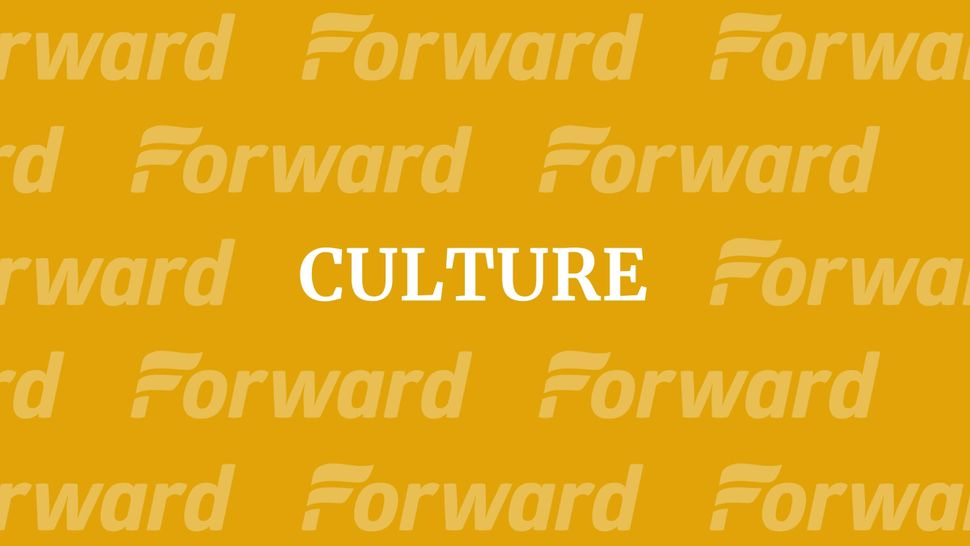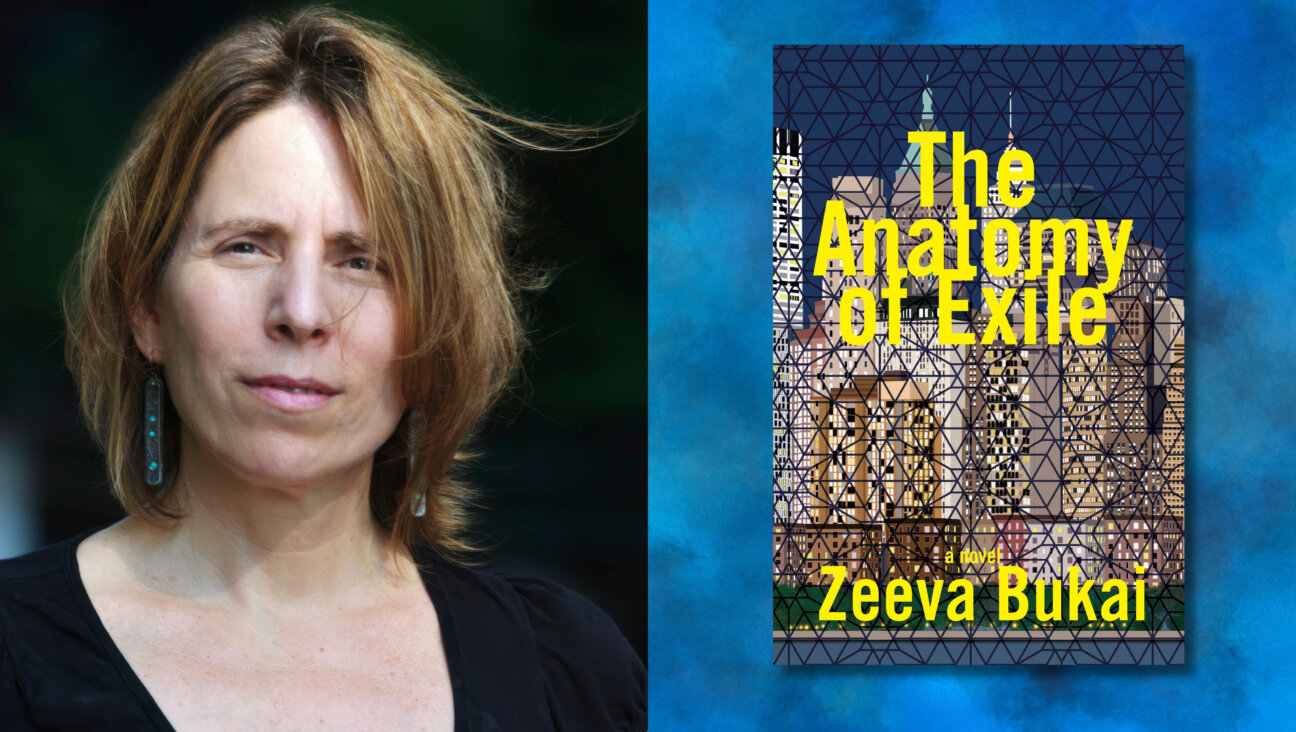Graphic Novelist Returns to Berlin

Miriam Katin appears naked in one panel of “Letting It Go,” her new graphic memoir about coming to terms with her past as a Holocaust survivor. But the rest of this novel-length confessional comic is even more revealing.

Her first full-length work since 2006’s award-winning Holocaust memoir “We Are On Our Own,” “Letting It Go” chronicles Katin’s emotionally charged visit to Berlin after her son and his girlfriend relocate there. Katin’s fury over the move mellows to resignation, and finally acceptance, though her emotions surrounding her own history remain ambiguous. The book spares no one, least of all Katin, who unflinchingly depicts her self-doubt, angst, and bodily functions. Her cartooning style is masterful, maintaining classical elements while subverting genre conventions into a singular work that’s fluid, vibrant, and potent. It’s also hilariously funny.
Katin’s work is part of the exhibit “Graphic Details: Confessional Comics by Jewish Women,” which I co-curated and which the Forward is sponsoring. The traveling exhibit will open at the Jewish Museum of Florida in Miami Beach in October. Katin spoke to The Arty Semite from her home in New York.
Michael Kaminer: “We Are On Our Own” was published in 2006. Why so long between books?
Miriam Katin: I guess first it was exhaustion. I was ready for a next project and then I allowed time to pass, luxuriating in smaller commissions. Enjoying some of the recognition that was a total surprise.
Also at that time we had to take up the care of my mother-in-law and I was glad that I had no great deadlines.
The book is called “Letting It Go,” but there isn’t a cathartic moment when you let anything go. Can you explain?
Oh yes, this is a question that is coming up all the time. They ask me pointedly: “Sooo???”
And I am very quiet and taking my time in saying, well, no. It looks like I should let go but it is just a valiant try, or perhaps a quest, and surely a way to go on living with this reality.
There is a getting-used-to factor and sort of making the experience of Berlin and Germany an ordinary everyday thing. Bringing it down to just “life here, life there.” Working the survival instinct. That’s me.
What’s your thought process when you’re deciding whether to depict certain scenes — like the diarrhea incident at the Berlin hotel? Do you ever think, “This is too much, I have to tone it down or leave it out”?
I take courage from other women artists — the audacity of Lynda Barry, Phoebe Gloeckner, Diane Noomin and of course Alison Bechdel. Not for a moment I thought to leave that scene out because the very drama of it in my life that night, I believe, gave it power.
Yes, my husband went ” Oh. How can you? ” And that’s the point.
You’re quite merciless on yourself in the book; everyone else makes it sound like you’re overreacting to your son’s move to Berlin, including your mother. Is that how it all played out?
Yes. It was like an ultimate revenge of Hitler on me. I did not exaggerate any of it.
Was the process of writing the book, in fact, a letting-go?
Well, I had to deal with it somehow, so any other plan was immediately dropped away. From the time in 2009 when we decided to take a trip that included Berlin, for only a few days, my brain was writing and drawing. What else was there to do? Our friends insisted that I will fall in love with Berlin but nobody had the burden that I had. Would I let go? I didn’t know.
I just went into the process of recording, drawing, writing, taking every picture with the plan of maybe using it.
How did your husband and son feel about their portrayals in the book?
My husband Geoff — a great man. Well, he sort of understood it, did not quite agree with my problem but I guess he humored it. My son acted kind of puzzled but tried to understand. After all he knew the background. The portrayal? They are ok with it.
What does a graphic memoir offer you, as an author and artist, that a conventional autobiography would not?
I guess I am an artist of sorts. An illustrator, I hoped. These stories of my family were like a running narrative in my mind through my life. An unwanted, uninvited presence.
They begged to be told. But I am not a writer. And I thought, who needs another Holocaust book anyway?
Then when I first discovered the comic medium I thought that with drawing and some writing I can tell my story.
Even though the book is about coming to terms with your past, there are no flashbacks to your experiences. Why is that?
This book was created in “real time.” I was creating it while it was going on. The past is my first book. This one will not make much sense without reading the first one.
What’s next for you?
Ambient Pleasures. No kidding. I hope.
A message from our Publisher & CEO Rachel Fishman Feddersen

I hope you appreciated this article. Before you go, I’d like to ask you to please support the Forward’s award-winning, nonprofit journalism so that we can be prepared for whatever news 2025 brings.
At a time when other newsrooms are closing or cutting back, the Forward has removed its paywall and invested additional resources to report on the ground from Israel and around the U.S. on the impact of the war, rising antisemitism and polarized discourse.
Readers like you make it all possible. Support our work by becoming a Forward Member and connect with our journalism and your community.
— Rachel Fishman Feddersen, Publisher and CEO























